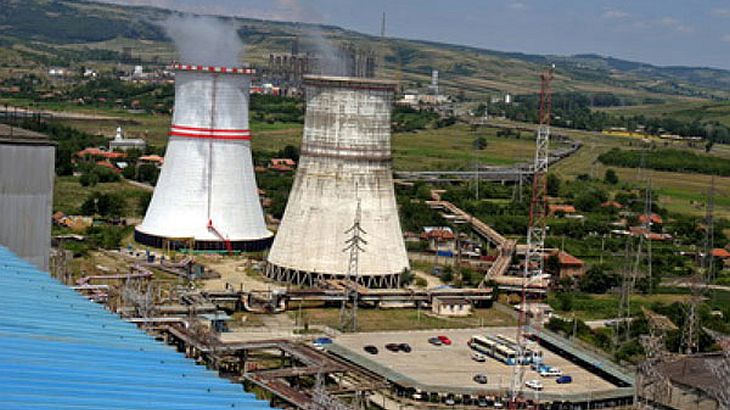Nuclearelectrica has preferred to import uranium from Canada and left the National Uranium Company (CNU) without sources of income in 2016, in order to keep its costs under control and maintain a safe operation of FCN Pitești and the operation of CNE Cernavodă. In an explanatory press release, SN Nuclearelectrica SA provides detailed information regarding the circumstances and arguments of that decision.
“Romania has a full nuclear cycle and we will keep it. Is a competitive advantage and we want to keep it”, said the Minister of Energy Victor Grigorescu recently. A laudable objective, jeopardized by the latest developments: the producer of heavy water is close to bankruptcy, and CNU has a new director, but remained without business.
Unilateral changes in contract terms
In the press release, Nuclearelectrica states that in 2014 it concluded a contract for the supply of sintered powder of UO2 with the National Uranium Company for a period of 36 months at a price of 475 lei/kg of UO2, “price which could be adjusted once at most every 12 months, by negotiation, in justified cases, concluding in this regard amendments to the agreement with the parties consent”.
CNU delivered UO2 according to the agreement at the negotiated price of 475 lei/kg of UO2, for a period of approximately 2 years. In 2015, “CNU notified SNN that it cannot achieve the delivery of UO2 at the price negotiated and agreed with SNN of 475 lei/kg and informed SNN that it could not achieve the actual delivery of UO2 for December 2015”, states the source.
“In terms of economic and financial, the price offered by CNU is much higher than the market price and 76% higher than the price agreed by contract between SNN and CNU in 2014, being financially untenable for SNN”, said Nuclearelectrica.
Unsustainable price hike
Nuclearelectrica considered that “accepting this significant increase in price, together with the fact that in 2016 the energy production of SNN will be lower due to the planned extended shutdown of Unit 1 CNE Cernavodă and with energy prices on the competitive market would lead to selling the energy produced by SNN below the cost of production and even to record financial losses”. The 228% price increase was not justified by CNU and went well above the market price, says Nuclearelectrica. In addition, if “the transaction is made at a price that the tax authorities consider that it is higher than the market price, then the difference and the related value-added tax will become undeductible expenses, aggravating even further the situation of SNN”.
I pity you, but me…
“SNN understands the plight of CNU, which is why SNN approached in good faith and availability the negotiations with CNU, granting even a remedy term and the possibility of concluding an addendum to the contract,” the statement occurs. In the absence of a more flexible approach from CNU, SNN initiated in December 2015 a competitive procedure of urgency between the two qualified suppliers, CNU and Cameco Inc. Canada. “Following the analysis of price bids, SNN stated that the winning company is Cameco, the price offered by the supplier is the lowest price between the two offers, far below the price offered by CNU, at market price level, including all taxes”, which allows Nuclearelectrica to acquire UO2 in order to hold the operation under normal conditions.
The two reactors at Cernavodă provide about 20% of the national energy consumption. Romania is the only country in the region that has a complete nuclear cycle, consisting of uranium mining (CNU), processing of raw materials (FCN Pitesti), use in production facilities (CNE Cernavodă) and the production of heavy water (RAAN Drobeta Turnu Severin).
In October 2014, the Minister of Energy insisted upon the necessity of the integration of National Uranium Company and Nuclearelectrica, that is has to advance and promised to “intervene”. Currently, the trade unionists of CNU count on the uranium uptake by the Romanian state, action possible by approving of a bill throughout which CNU will deliver the production to the National Administration of State Reserves and Special Issues.
